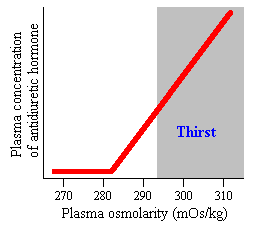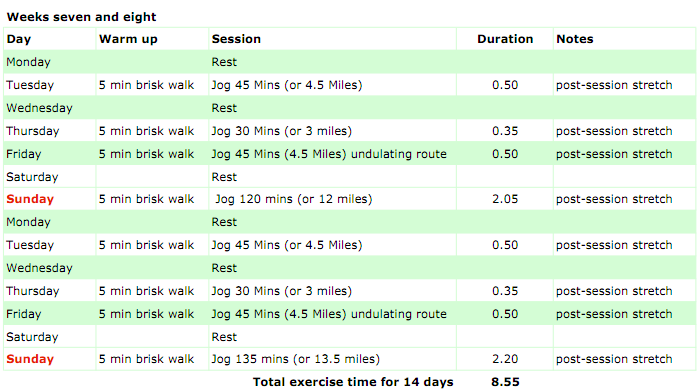Hydration and Not-so Basic Biochemistry
Has anyone ever told you that drinking water slowly after a hard run is better for you than drinking a lot of it really quickly? I had a track coach in high school who used to tell me that it’s bad to drink too much water too quickly after a hard workout. I was curious to find out if there’s any truth to it so I decided to revisit Biology 101: hello, osmosis!
Quick recap: osmosis is the net movement of water down a concentration gradient. The key thing to note is that water flow is determined by differences in solute concentrations (it moves from a low solute environment to a high solute environment).
When we train hard, we can become dehydrated. To look at the extreme end of what can happen –> less water = less solvent = high solute concentrations in the body! Naturally, our internal regulators kick into high gear and here are some of the things that happen:
- An antidiuretic hormone (ADH) called arginine vasopressin is released to tell the kidney to reabsorb more water back into circulation and decrease the formation of urine. The chart below gives you a good idea of the relationship between ADH concentration and Osmolarity (courtesy of R. Bowen from Colorado State University) – the more thirsty we become, the more we try to retain water that’s still in our system! Sweet!

- Let’s say we just finished that hard workout and we drink lots of water in a very short amount of time. The kidney is only able to process about 1 liter of water per hour (although, I’m sure this varies depending on the test subject). A study published by the South African Medical Journal suggests that consuming more than that amount in an even shorter period of time causes a progressive increase in blood volume –> lowering sodium concentrations –> resulting in hyponatraemia.
- The kidney is unable to flush out the water quickly enough, so too much water seeps into the blood stream and any regions with higher solute concentration (basic osmosis).
- Most cells have the capacity to expand. For those that don’t, pressure builds up, which causes other very serious problems including (in one of the worst possible circumstances) brain edema. Check out this “Strange but True” article from from the Scientific American. Pretty crazy stuff!
Let’s put this all in layman terms: the fact is, if you drink more water than your body can retain, your body just flushes it out. And it’s really quite rare for people to suffer from hyponatraemia! Chances are, my track coach was just trying to tell me that if I consumed too much water too quickly that it would just pass right through me instead of properly absorbing it. Yup. Now my next question would naturally be: what’s the quickest way to rehydrate myself without overhydrating? Perhaps, a follow-on entry…


